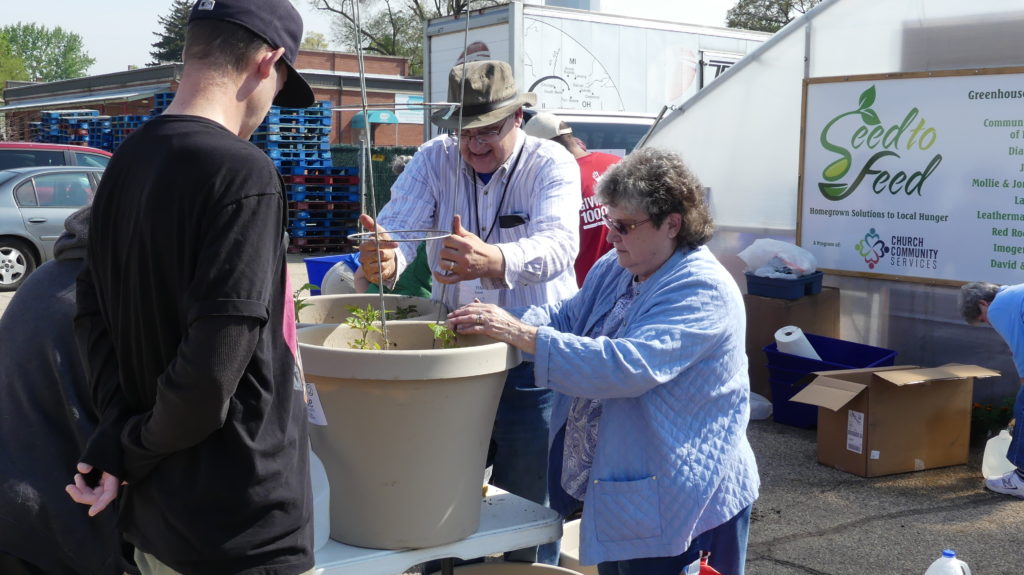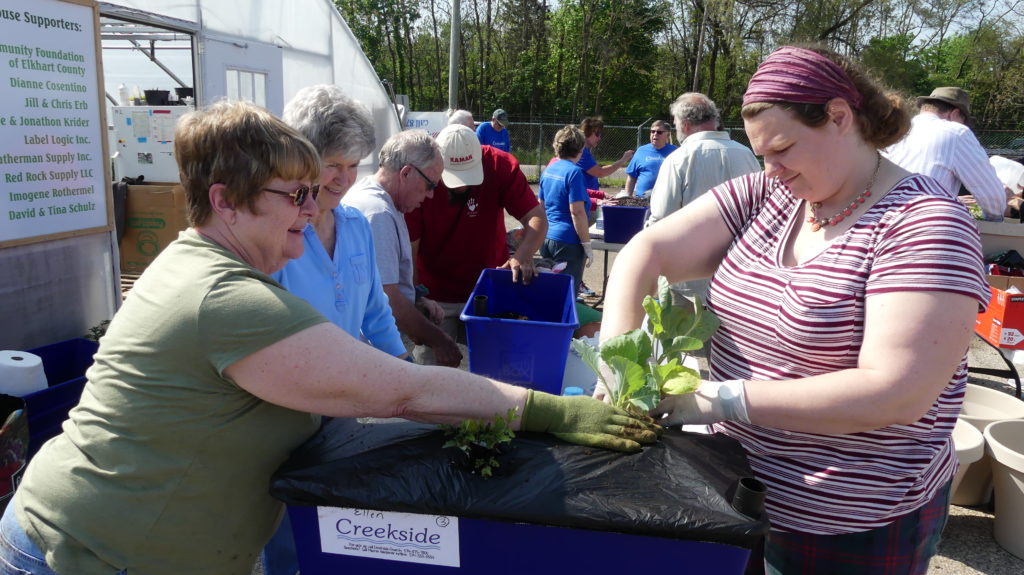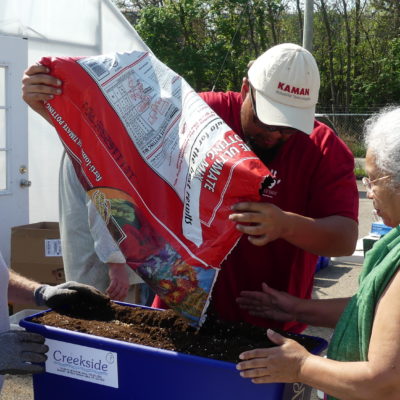
A planting day hosted by Church Community Services in Elkhart, Ind.
by Diane Lund
My congregation—Creekside Church of the Brethren in Elkhart, Ind.—participates in the Seed to Feed Program, part of Church Community Services (CCS) in Elkhart. The program consists of a network of gardens that provide fresh produce for food pantry guests.
We have one of the larger gardens on our church property. Each season, we are given direction as to what to plant. For the past two seasons, this has included tomatoes, many varieties of peppers, varieties of squash, cucumbers and herbs. It is not uncommon for us to bring in several tons of produce. With assistance from other churches, we process many of the tomatoes, have them frozen at the nearby county jail and then distribute them over the winter months at the CCS food pantry for guests to use in soups, sauces and stews.
We encourage people to come and harvest produce for themselves and their families. We also began sending out a mailing to the neighborhoods surrounding our church property informing them that they are welcome to come to our gardens and harvest produce for themselves.
Ministry with rather than for
This past fall, our church completed a year-long discernment process for a grant. The goal was to develop a mutual ministry within our community to meet a community need: ministry with as opposed to ministry for. During this time, we were influenced by a YouTube video entitled, “Food Deserts in Elkhart County.” Carol Lee, a Goshen College student, prepared the presentation for a class called Roots of the Environmental Crisis in 2017. Because of our relationship with Church Community Services and Carol Lee’s video, we became acutely aware of food insecurity in our county. We also learned that our church is located in a food desert: an area where it is difficult to buy affordable or good-quality fresh food.
 With that in mind, we decided to expand on our work with the Seed to Feed program. Now, we offer the materials and education for container gardens, ideally empowering individuals to grow their own produce. We also ran a pilot project last summer with guests of the CCS food pantry, clients and therapists from Oaklawn Psychiatric Center and the Council on Aging. We provided seeds, plants, potting mix, containers and education and worked with interested individuals. We met many of our ministry partners at a planting day at Church Community Services; we took all of the supplies to the people we met through the Council on Aging. We kept in contact with the participants over the summer and picked up the containers at the end of the season. Our greatest success was with the group from the Council on Aging: every person wished to have a container next year.
With that in mind, we decided to expand on our work with the Seed to Feed program. Now, we offer the materials and education for container gardens, ideally empowering individuals to grow their own produce. We also ran a pilot project last summer with guests of the CCS food pantry, clients and therapists from Oaklawn Psychiatric Center and the Council on Aging. We provided seeds, plants, potting mix, containers and education and worked with interested individuals. We met many of our ministry partners at a planting day at Church Community Services; we took all of the supplies to the people we met through the Council on Aging. We kept in contact with the participants over the summer and picked up the containers at the end of the season. Our greatest success was with the group from the Council on Aging: every person wished to have a container next year.
The essential aspect of mutual ministry is the development of community relationships. We are exploring several new connections. One is with ADEC, a local organization that works with people with developmental disabilities. Another is with the Hispanic community. It is our hope to have some of our written materials translated into Spanish this year. We are also working with the outdoor education coordinator at Camp Mack, Milford, Ind., to launch a kids’ garden club. The group would meet at Creekside and make use of our facility, our on-site greenhouse (new in September), and the beehives that we will soon set up. We are very excited about these new community relationships, and trust that this ministry will grow and flourish.
